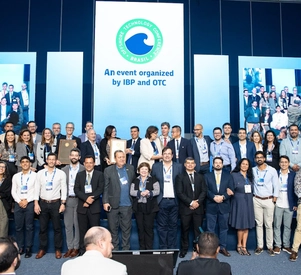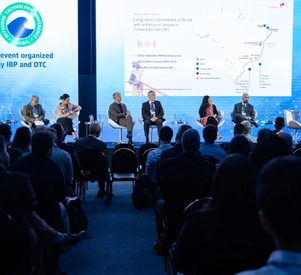Dividend Taxation in Bill PL 1087/25
Attracting investments is essential for the development of economic activities in Brazil, especially those requiring large volumes of capital, such as the oil and gas industry. In this context, the Brazilian Petroleum and Gas Institute (IBP) views with concern the proposal for withholding tax on dividends paid abroad to legal entities, included in Bill PL 1087/25.
The measure arises as a way to offset revenue losses from the expansion of the Personal Income Tax (IRPF) exemption for individuals earning up to BRL 5,000 per month, as foreseen in the bill. However, this compensatory action affects investor confidence and puts the allocation of resources in the country at risk.
IBP understands that corporate taxation requires a comprehensive approach, evaluating not only the introduction of taxation on dividend remittances but also the calibration of the Corporate Income Tax (IRPJ) and the Social Contribution on Net Profit (CSLL) rates.
We emphasize that the proposal to tax dividends paid abroad contained in PL 1087/25 could make Brazil less attractive from a capital return perspective. Studies indicate that each percentage point reduction in tax rates has the potential to generate a 3% increase in Foreign Direct Investment (FDI).
It is worth remembering that the dividend exemption, adopted in Law No. 9,249/1995, aimed to avoid double economic taxation of income and attract investments to the country. It is a simple and effective measure that should not be altered for merely revenue-raising purposes, which would leave Brazil with one of the highest corporate tax burdens in the world.
For comparison, studies indicate that the average corporate tax rate in European countries is 20.53%, compared to 34% in Brazil. Withholding on dividends paid abroad and the creation of a tax credit imposes a linkage between effective and nominal rates to which domestic corporate shareholders are not subject, violating equality, non-discrimination, and the principle of ability to pay, in addition to nullifying the economic effects of fiscal incentives already provided in the law that mitigate Brazil’s already high effective rate.
Moreover, PL 1087/25 does not provide a transition period or establish protective mechanisms to preserve the distribution of profits generated under the current legislation, which upholds the principle of legal certainty—so critical for investment decisions.
For IBP, a deep and broad discussion is necessary, considering the economic consequences for the country. As presented, PL 1087/25 generates uncertainty and insecurity for investors regarding Brazil’s attractiveness in the global oil and natural gas market.




